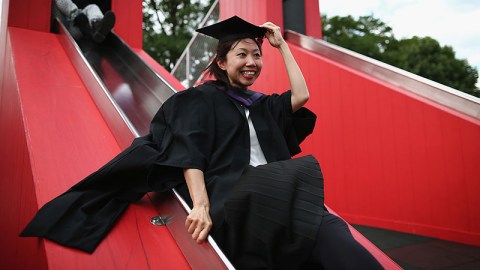Prepare Students for College to Lower Inequality

College can be a stressful experience for a variety of reasons. In fact, a survey by Business Insider showed that college students worry about a lot of things, especially money, but also how to manage stress and alcohol use. And the stressors of college are even harder to manage for students of color and those from low-income backgrounds.
Researchers and education policy professionals have known for quite some time that such students have a harder time adjusting to, and staying in college environments. For example, the cost of college is an even greater concern for students without much money than it is for better off students. And dropout rates are correspondingly elevated. In fact, about 38 percent of low-income borrowers of student loans drop out of college, compared to 25 percent of high-income borrowers.
But you also have to take into account the non-financial supports that lower income students and students of color often need, such as mentoring, academic assistance, and soft skill development for navigating white-collar professional environments. The work of full-service programs that provide this variety of supports has been shown to make a difference in getting students to graduation.
Now research out of the University of Texas at Austin backs up many smaller studies on the topic with findings from a comprehensive 9,500 student study. More specifically, the study looked at preparing first-generation students and students of color for the challenges they would encounter in college. When such students were helped to recognize the stressors of college as “normal and temporary” they were more likely to stay enrolled and get better grades throughout their first year at university.
The conversation of emotional and motivational supports to get students through college ties in to Big Think expert Tavis Smiley’s analysis that the conversation on improving opportunity for all should revolve around the issue of economic mobility. Education could be just such a tool.
—
Header Image: Dan Kitwood / Staff





